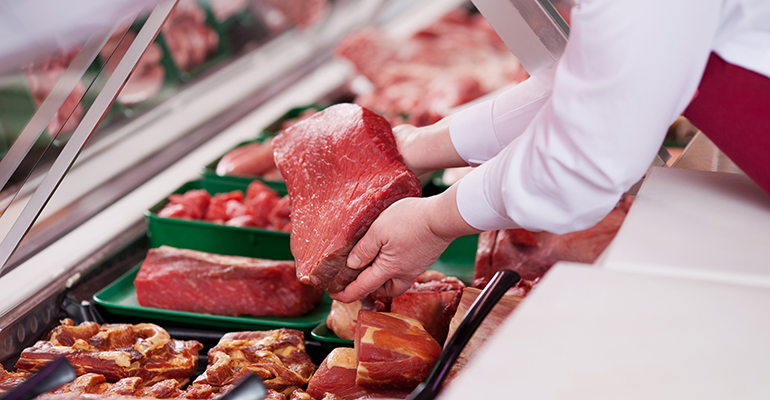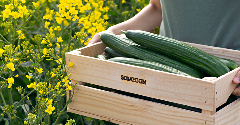News
Pandemic drives an increase in meat consumption across UK
2 Feb 2021After years of growth, the movement of consumers away from meat has slowed in the UK, according to new data from Mintel. Over the course of 2020, the percentage of Brits reducing their meat consumption dropped from 51% in 2019 to only 41% in 2020.
This decline in those eschewing meat from their diets coincided with a rise in processed meat sales, which spiked 18% to £3.7 million ($5 million) in 2020. Sales of bacon, sausage and burgers all rose with gains of 18%, 20% and 26% respectively. Deli meats, a category that has waned in recent years, posted a 22% increase in category sales in 2020.

Mintel found part of the reason behind these gains is due to the comfort associated with meat dishes. Over half (58%) of consumers eating meat and poultry said that meals with meat are comforting. This finding is reflected in data from the International Food Information Council (IFIC), showing that in 2020 19% of those surveyed had eating habits that had become less healthy over the course of the pandemic with consumers seeking out more comforting and indulgent foods.
While eating less meat is widely considered by consumers to contribute to greater overall health, many also consider it better for the environment, which has become an important consideration for shoppers. In its survey, Mintel recorded that between 2018 and 2020, the number of Brits that considered eating less meat to be better for the environment increased from 25% to 42%. Similarly, a study from the consulting firm Kearney similarly found that as of this spring, 83% of consumers considered the environment when making purchases, up from 71% in 2019.
Nevertheless, the uncertainty and disruption caused by COVID-19 has driven environmental and health considerations to take a back seat to other concerns such as value and availability. The IFIC found 28% of shoppers were worried about their ability to afford enough food in 2021.
Still, although the pandemic caused a seismic shift in consumption habits, Mintel expects this return to more meat consumption to be short lived. In the mid- to long-term, the market analysis company foresees a return to the general trend of eating less meat, and therefore offered a positive outlook for plant-based companies that are working to earn a bigger slice of the market even as they continue to compete on price and perceived benefits as compared to animal-based options.
Related news

Soy story: WWF scores UK supermarkets on sustainability efforts
12 Nov 2025
WWF has published its latest “Soy Scorecard”, ranking UK supermarkets’ efforts to combat deforestation and land conversion in their soy supply chains.
Read more
Standing Ovation and Bel scale up casein production from dairy co-products
11 Nov 2025
Foodtech company Standing Ovation has partnered with cheese specialist Bel Group to manufacture dairy serums for industrial-scale casein production via precision fermentation.
Read more
New UPF standard hoped to offer consumers ‘coherence and clarity’
10 Nov 2025
Ingredients companies are being urged to enter “a new era of partnership and innovation” following the launch of the industry’s first non-UPF verification scheme.
Read more
Whistleblowers accuse UK meat industry of promoting cheap, unsustainable supply
7 Nov 2025
An anonymous group of industry insiders has accused the UK’s biggest food companies of systematically driving down meat quality and welfare standards.
Read more
Bord Bia presents Irish dairy ingredient suppliers at Fi Europe
6 Nov 2025
Dairygold Co-operative Society, The Carbery Group, and Ornua Co-operative: Meet with sustainable producers of Irish dairy ingredients at Food ingredients Europe 2025, Hall 7.2 Stand M18.
Read more
AI attraction means foodtech startups must ‘prove’ rather than ‘promise’
4 Nov 2025
Reports suggest that artificial intelligence (AI) is sucking investment from foodtech and agritech, but investors say the picture is complicated.
Read more
Penguin and Club bars no longer classed as chocolate
30 Oct 2025
Penguin and Club bars can no longer be classified as chocolate after the pladis-owned McVitie’s brands turned to cheaper alternatives amid the ongoing cocoa crisis.
Read more
Could plant-based protection replace plastic packaging?
29 Oct 2025
Swedish foodtech company Saveggy has launched an additive-free plant-based protection for cucumbers, offering a waste-free packaging solution for fruit and vegetables.
Read more
Does promoting protein content push up plant-based sales?
27 Oct 2025
Promoting the protein content of meat-free products is a more effective sales strategy than adding carbon labels, a study of UK bakery chain Greggs suggests.
Read more
Amazon Grocery launch aims to balance quality with affordability
22 Oct 2025
Global e-commerce giant Amazon has introduced a new private-label food brand, combining existing Amazon Fresh and Happy Belly products with new everyday items.
Read more